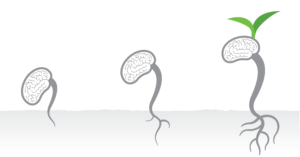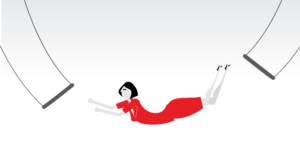If you’re going through hell, keep going.
Winston Churchill
January Reflections – Bold Subtraction

As January draws to a close, and we reflect on the goals we set, perhaps even create a new habit or two, is it also time to reflect on the nature of our goals?
Most of us tend to think in terms of additions.
- What new thing do we want to do?
- Where do we want to go?
- What new accomplishments do we want to achieve?
The challenge with adding and not subtracting is, for most of us, there simply isn’t room. So, before you give up and join the ranks of folks exiting the gym before Valentine’s Day or stop setting goals, as one of my clients recently said, “I put the same things on my goal list every year; it seems silly to bother,” is it time to consider a bold subtraction instead?
Here are some questions that may help answer the bold subtraction question:
- What did I give only my time, and not my passion, to last year?
- How does this answer compare to previous years?
- If my passion/time ratio has declined, what must I do or learn to change this? Do I want to continue to invest the required energy in this endeavor?
- If I boldly subtracted this passionless activity from my life, am I willing to go bravely forward not knowing, and instead discovering, what I will replace it with?
The Fresh Start Effect

Temporal landmarks inspire us to reflect on our lives in a big-picture way motivating us to set goals for better behavior.
Researchers describe this phenomenon as the fresh-start effect. According to the fresh-start effect, people are likelier to take action toward a goal after temporal landmarks. Psychologists studying the fresh-start effect show that it works because highlighting meaningful occasions creates a clean slate for people to make better decisions.
This month is one of those important temporal landmarks. A new year, a new beginning, an opportunity to choose:
- What matters to me? What am I willing to change or stop so that what matters to me gets my attention?
- What important thing have I been neglecting? Health perhaps?
- What actions am I willing to take to turn my resolutions into actions and my actions into habits that extend beyond Valentine’s Day?
Leadership Quote: If you want to reach a goal…
If you want to reach a goal, you must ‘see the reaching’ in your own mind before you actually arrive at your goal.
Zig Ziegler – Hilary Hinton “Zig” Ziglar was an American author, salesman, and motivational speaker.
I Appreciate Your Grace

In the last few weeks, more than once, I’ve heard the comment, “I appreciate your grace or thank you for your grace.”
- Is it driven by the time of the year?
- Or the challenges of our divisive society?
- Or the pace at which so many of us are moving?
Whatever the reason this is becoming a familiar refrain, it is a reminder of what it means to accept. Asking for grace is asking for acknowledgment of my humanity. Giving others grace is a compassionate act that says, “I won’t judge you.”
In a world where judgments can be swift and unforgiving, giving grace can be a powerful reminder of the value of empathy, understanding, and forgiveness in building relationships and community.
Happy Holidays.
It’s That Time of Year Again…

As the year draws to a close, we tend to want to take stock. With that in mind, here are a few questions to consider about the past year:
- Who or What was the most rewarding experience?
- Who or What was disappointing?
- Who or What was surprising?
And for the coming year:
- What am I looking forward to?
- What do I want to accomplish?
- Have I checked in with myself on my goals? Will the ones I am pursuing feed what matters to me, or is something or someone else driving my goals?
Stay In Your Swim Lane

The phrase “stay in your swim lane” has become a familiar refrain, especially in the corporate world. A euphemism for focus on your responsibilities, stay out of mine.
It has also come to mean sticking to your area of competence and experience.
But what if you want to try something new?
You Pivot™ clients want change; that’s why they sign up for the program. Sometimes, the change they seek results in a shift in the same lane; sometimes, it’s not only a new lane, it’s a new pool.
Following is my personal swim lane story. I’ve had three major pivots in my life. My first significant pivot was a shift from executive in the financial services world to consultant in the same space. I was swimming in a new pool of entrepreneurship rather than corporate executive, but the lane, i.e., financial services, was familiar.
My next pivot was to a new pool and a new lane as I began working primarily with C-Suite leaders of privately held companies, first as a consultant and then as a leadership coach. This pivot was challenging in new ways as I had to overcome the swim lane expectation. After spending 20+ years in financial services, that was my expected swim lane. I wanted to be industry agnostic, and it took a while before I had a diverse group of clients from different industries.
By the time I created the You Pivot™ Program, I had been swimming in my executive coach lane for many years. The shift from leadership coach to executive life coach – supporting leaders who are in transition and want to pivot – was seamless.
As I think about my You Pivot™ clients, most have stayed in their lane. Some have chosen a shift to a new role in the same industry, and some have stayed where they were with a fresh perspective. A few have ventured out of their lane, e.g., from corporate executive to founder of a new enterprise, from business leader to not-for-profit leader, or even out of leadership to direct volunteering.
The peer pressure to stay in your lane can be intense. I have a client who has been a not-for-profit leader for many years; colleagues are pushing her to move to her next NFP leadership role, to stay in her lane. She wants to explore other pools and has begun this exploration since we have been working together.
In summary, while staying in your lane is easier and holds merit in some contexts, it is essential to recognize that there are situations where breaking free from such constraints is not only acceptable but advantageous.
Embracing flexibility, being open to new experiences, and a willingness to investigate other “pools” can lead to personal and professional growth in this ever-changing world.
Are Your Expectations Too High Or Too Low?

How do you know if your expectations are too high or too low?
- Sometimes, we set our sights too low and don’t achieve as much as we can.
- Sometimes, we expect too much from ourselves and feel we don’t measure up.
- Sometimes, we expect too much from clients, vendors, and others, and they feel they can’t please us.
- Sometimes, we expect too little or don’t ask for what we want from others and take on too much ourselves instead.
How do we know which it is? For me, the litmus test is this:
- How often are my expectations of myself or others met?
- What does my gut say about that percentage? Too high? Too low?
- What must I do next to align my expectations with what is possible?
Leadership Quote: The hardest thing is…
The hardest thing is to take less when you can get more.
Kin Hubbard – American cartoonist and humorist
Thanks-Giving

Thanksgiving is a uniquely American holiday. A time for us to let go of our differences, support one another, and find gratitude. For me, it is a time to pause, consider the gifts that life has given me and ask myself how and where I can pay them forward.
The current inflationary environment, while abating continues to be unequal in ways that will have a lasting effect. Household staples are the biggest inflation contributors and have the most unequal impact.
As Thanks-Giving approaches, it’s time for those of us who have the gift of privilege to pause and ask ourselves these questions:
- What can I do to support the businesses in my community so they can pay it forward and continue to employ people?
- What can I do to support my neighbors who may be struggling with housing, food insecurity, and other unmet basic needs?
- What can I do to support the agencies, including the arts, that fill the gaps in these unmet needs and bring hope and beauty to our community?
 The initial results of my Pivot are excellent. I feel I have much greater clarity regarding the next 3-5 years..
The initial results of my Pivot are excellent. I feel I have much greater clarity regarding the next 3-5 years.. 